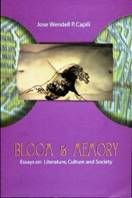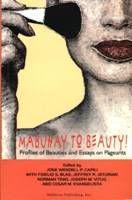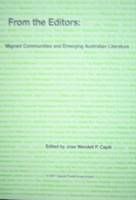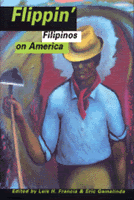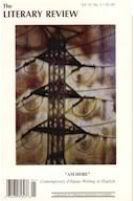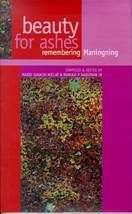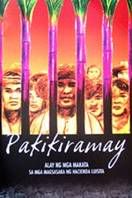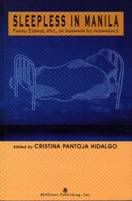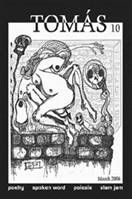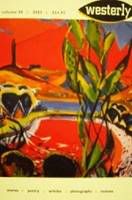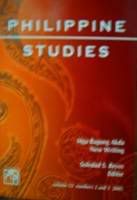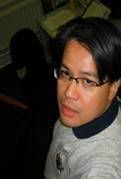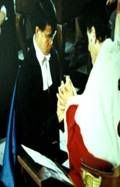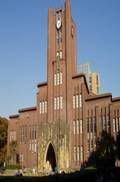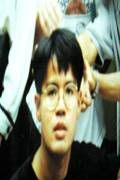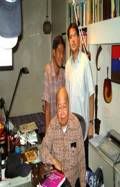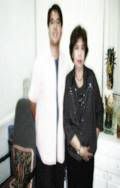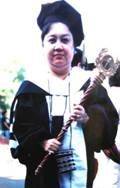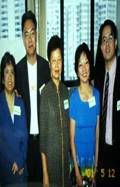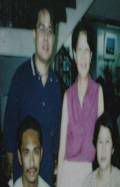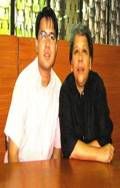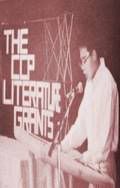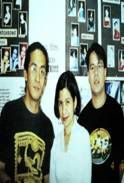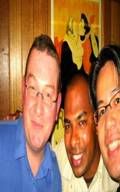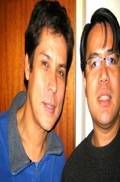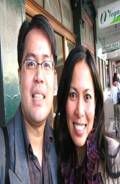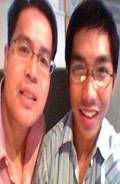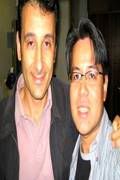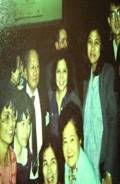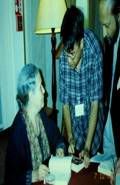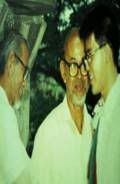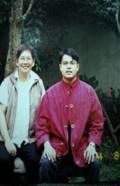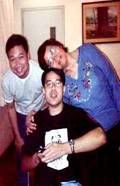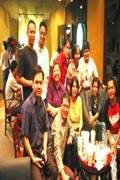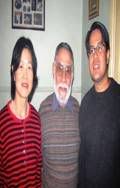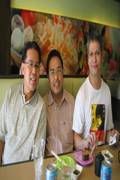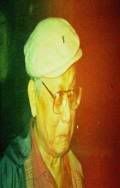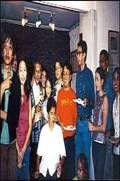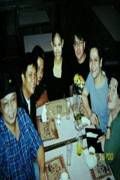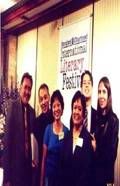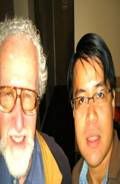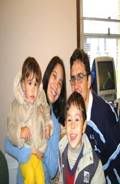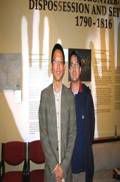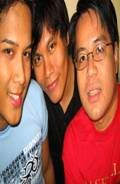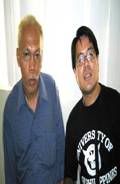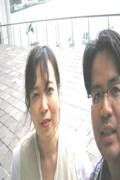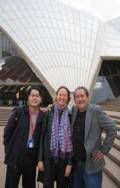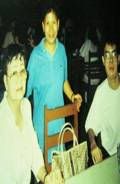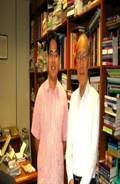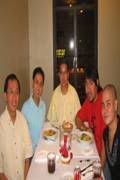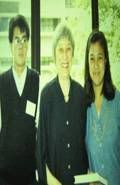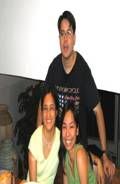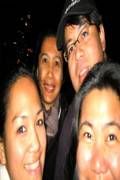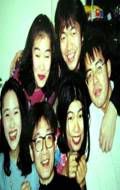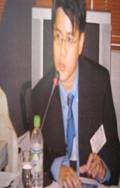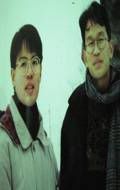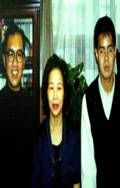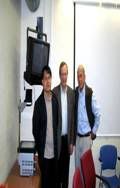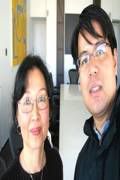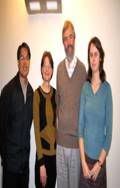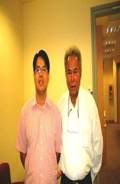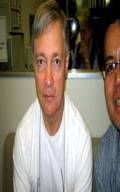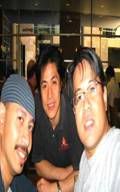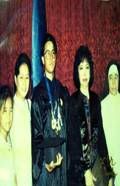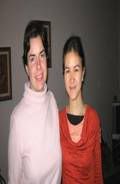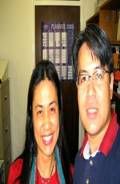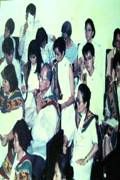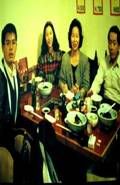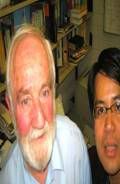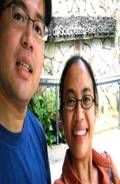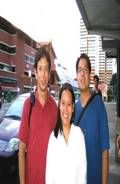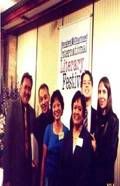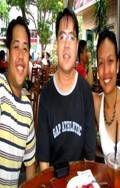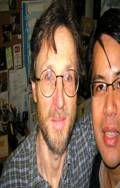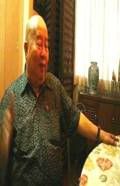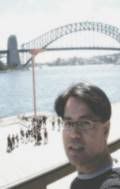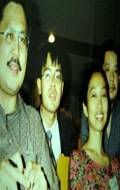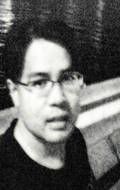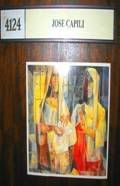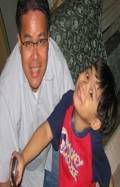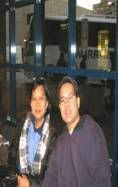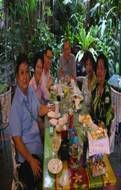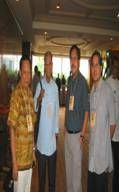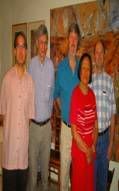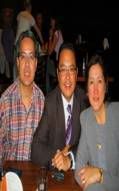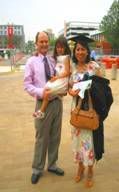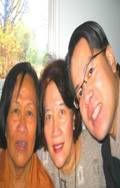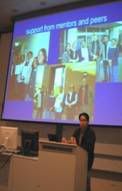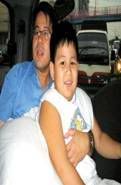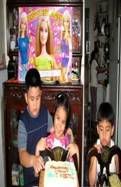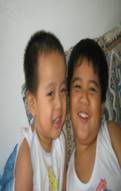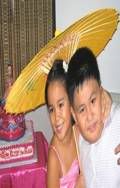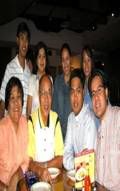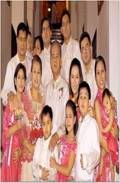Beyond 2010: Leadership for the Next Generation
A UP Academic’s Congress To Challenge our Next Leaders
February 1 to 5, 2010
Malcolm Hall, College of Law
University of the Philippines, Diliman, Quezon City
(admission is free / open to the public)
This academic congress intends to identify the current issues, map the various approaches that have been tried in the past, provide some assessment of their gains and failures and draw out possible actions that must be done by the next administration. It is intended to empower the general public by making these issues transparent. It is not solely addressed to the candidates for the 2010 elections. At the end of the forum, the public should be able to draw their own measurable objectives and milestones that can be achieved within the next six years hence allowing them to craft questions which they can ask from their candidates and make wise choices. The forum should draw responses from the political candidates that will go beyond mere generalities or rhetoric.
PROGRAM SCHEDULE
DAY 1 - February 1, 2010, Monday
8:30 AM Start of Registration Proper
9:30 AM Opening Ceremonies
9:30 – 9:45 AM Opening Remarks by Dean Marvic M.V.F. Leonen
9:45 – 10:00 AM Message from UP President Emerlinda R. Roman
10:00- 10:45 AM “What Truly Matters to Filipinos?” by Prof. Randolf S. David
10:45 – 12:00 AM Open Forum
12:00 – 1:30 PM Lunch Break
1:30 – 3:30 PM Session 1: Jobs and the Cost of Doing Business
3:45 – 5:45 PM Session 2: Debt and Deficits
DAY 2 - February 2, 2010, Tuesday
8:30 AM Registration Proper
9:00 – 11:00 AM Session 3: Political Economy of Mindanao
11:00 – 1:00 PM Lunch Break
1:00 – 3:00 PM Session 4: Health and Politics
DAY 3 - February 3, 2010, Wednesday
8:30 – 10:30 AM Session 5: Diaspora of Filipinos
10:30 – 12:30 PM Session 6: Property Reform and Related Issues
12:30 – 1:30 PM Lunch Break
1:30 – 3:30 PM Session 7: Urban Development and Housing
3:45 – 5:45 PM Session 8: Science and Technology
DAY 4 - February 4, 2010, Thursday
8:30 – 10:30 AM Session 9: Confronting Trade, Markets and Regulation
10:30 – 12:30 PM Session 10: Foreign Policy
12:30 – 2:00 PM Lunch Break
2:00 – 4:00 PM Session 11: Climate Change and DRR
DAY 5 - February 5, 2010, Friday
8:30 – 10:30 AM Session 12: Culture of Impunity
10:30 – 12:30 PM Session 13: Elections and How to Choose Leaders
12:30 – 1:00 PM Lunch Break
1:30 – 3:30 PM Session 14: Labor
3:45 – 4:45 PM Summary by the Chief Rapporteurs
4:45 PM Closing Remarks by UP Diliman Chancellor Sergio S. Cao
Session 15: Energy Security (Third week of February)
Beyond 2010: Leadership for the Next Generation
A UP Academic’s Congress To Challenge our Next Leaders
February 1 to 5, 2010
Malcolm Hall, College of Law
University of the Philippines, Diliman, Quezon City
This academic congress intends to identify the current issues, map the
various approaches that have been tried in the past, provide some
assessment of their gains and failures and draw out possible actions
that must be done by the next administration. It is intended to
empower the general public by making these issues transparent. It is
not solely addressed to the candidates for the 2010 elections. At the
end of the forum, the public should be able to draw their own
measurable objectives and milestones that can be achieved within the
next six years hence allowing them to craft questions which they can
ask from their candidates and make wise choices. The forum should draw
responses from the political candidates that will go beyond mere
generalities or rhetoric.
PROGRAM SCHEDULE
DAY 1 - February 1, 2010, Monday
8:30 AM Start of Registration Proper
9:30 AM Opening Ceremonies
9:30 – 9:45 AM Opening Remarks by Dean Marvic M.V.F. Leonen
9:45 – 10:00 AM Message from UP President Emerlinda R. Roman
10:00- 10:45 AM “What Truly Matters to Filipinos?” by Prof. Randolf S. David
10:45 – 12:00 AM Open Forum
12:00 – 1:30 PM Lunch Break
1:30 – 3:30 PM Session 1: Jobs and the Cost of Doing Business
3:45 – 5:45 PM Session 2: Debt and Deficits
DAY 2 - February 2, 2010, Tuesday
8:30 AM Registration Proper
9:00 – 11:00 AM Session 3: Political Economy of Mindanao
11:00 – 1:00 PM Lunch Break
1:00 – 3:00 PM Session 4: Health and Politics
DAY 3 - February 3, 2010, Wednesday
8:30 – 10:30 AM Session 5: Diaspora of Filipinos
10:30 – 12:30 PM Session 6: Property Reform and Related Issues
12:30 – 1:30 PM Lunch Break
1:30 – 3:30 PM Session 7: Urban Development and Housing
3:45 – 5:45 PM Session 8: Science and Technology
DAY 4 - February 4, 2010, Thursday
8:30 – 10:30 AM Session 9: Confronting Trade, Markets and Regulation
10:30 – 12:30 PM Session 10: Foreign Policy
12:30 – 2:00 PM Lunch Break
2:00 – 4:00 PM Session 11: Climate Change and DRR
DAY 5 - February 5, 2010, Friday
8:30 – 10:30 AM Session 12: Culture of Impunity
10:30 – 12:30 PM Session 13: Elections and How to Choose Leaders
12:30 – 1:00 PM Lunch Break
1:30 – 3:30 PM Session 14: Labor
3:45 – 4:45 PM Summary by the Chief Rapporteurs
4:45 PM Closing Remarks by UP Diliman Chancellor Sergio S. Cao
Session 15: Energy Security (Third week of February)
First Day – February 1, 2010, Monday
Morning
Opening Sessions
Message: “The Imperatives for Philippine Society within the Next Generation”
(President Emerlinda R. Roman, University of the Philippines)
Discussions: “What Should Truly Matter to Filipinos?” (Prof. Randolf S. David,
Department of Sociology, University of the Philippines-Diliman)
Afternoon
Session 1: Jobs and the Cost of Doing Business in the Philippines (Former Dean
Raul V. Fabella, School of Economics, University of the Philippines-Diliman)
Panel Presentors
Dr. Cielito F. Habito
Department of Economics, Ateneo Manila University
Dr. Cayetano W. Paderanga Jr.
School of Economics, University of the Philippines-Diliman
Session 2: Debt and Deficits (Dean Emmanuel S. de Dios, School of Economics,
University of the Philippines-Diliman)
Panel Presentors
Dr. Felipe M. Medalla
School of Economics, University of the Philippines-Diliman
Dr. Benjamin E. Diokno
School of Economics, University of the Philippines-Diliman
Prof. Leonor M. Briones
National College of Public Administration and Governance, University of the Philippines-Diliman
Panel Abstract
The panel on debt and deficits will critically examine what is right and what is wrong with the state of public expenditures and revenues. It will assess what room, if any, exists for fiscal expansion beyond 2010. A concrete proposal will be put forward regarding the level and pattern of spending, with priority areas being delineated. The panel will identify urgent, high-impact, and readily implementable reforms to raise revenue effectively and equitably. Potential threats to continuing fiscal stability will be identified. Finally, the political economy of the budgetary process involving the executive, legislature, and local governments will be explained and directions for reform indicated.
Second Day – February 2, 2010, Tuesday
Morning
Session 3: Backrooms, Battlefields, and Backhoes: The Mindanao Conundrum (Dr. Eduardo C. Tadem, Asian Center, University of the Philippines-Diliman)
Panel Presentors
Dean Julkipli M. Wadi
Institute of Islamic Studies, University of the Philippines-Diliman
Prof. Rudy B. Rodil
Department of History, Mindanao State University-Iligan Institute of Technology
Dr. Eduardo C. Tadem
Asian Center, University of the Philippines-Diliman
Mr. Francisco J. Lara Jr.
Ph.D. Candidate, London School of Economics and Political Science
Panel Abstract
In contrast to the belief that growth and development have bypassed Mindanao, its socio-economic development shows that the region has been a primary contributor to the country’s productive capacities. But the wealth generated has only resulted in a more distressed socio- economic condition for Mindanao than for the nation as a whole, an enigma exacerbated by internal colonialism—the transfer of wealth from the south to the nucleus of political-economic power in the north.
The relation of the Philippine State and the Bangsamoro polity has often been subjected to a “Sisyphean ordeal,”—each time a new development emerges, e.g., a vision of social order, political arrangement, or policy reform, it is always followed and often times countered by subsequent development, leaving the whole relation in tatters while the vision is left to cascade into dramatic irrelevance. Of equal concern is the plight of Mindanao’s 35 Lumad tribes—indigenous communities who live outside Moro areas.
Severely marginalized as a result of state resettlement programs, they now assert their own identity and right to self-determination by focusing on securing ancestral domain claims, a right that government and the other Mindanao sectors must recognize to allow the Lumads to create and develop their own social spaces.
Finally, the Maguindanao massacre can be understood by looking at the interface between two types of armed challenges—“vertical armed challenge against the state,” (i.e., MNLF and the MILF), and “horizontal armed challenges” symbolized by “inter- and intra-clan and group violence.” An “exclusionary political economy developed through contest and violence” has impoverished Muslims. Growth has been artificial while “the exploitation of lootable or non- lootable resources opens up new arenas of conflict, and a rise in violence.”
Afternoon
Session 4: Building Blocks to the Universal Enjoyment of the Right to Health (Prof.
Mary Lou L. Alcid, College of Social Work and Community Development, University of the
Philippines-Diliman)
Panel Presentors
Dean Alberto G. Romualdez Jr.
Graduate School for Health Sciences, Pamantasan ng Lungsod ng Maynila,
Dr. Edelina Padilla-Dela Paz
College of Medicine, University of the Philippines-Manila
Dr. Elizabeth R. Paterno
College of Medicine, University of the Philippines-Manila
Former Dean Fatima A. Castillo
College of Arts and Sciences, University of the Philippines-Manila
Panel Abstract
Every one has the right to the highest attainable standard of physical, mental, reproductive and sexual health, and an enabling environment to guarantee its enjoyment. This frames the panel’s analysis of persisting and widening health inequities in the Philippines with adverse consequences on the poor, women and other marginalised sectors.
The panel examines health care system with focus on the organisation and governance of health services, cost of medicine and other health supplies, the training and distribution of health professionals, and health financing. Moreover, it interrogates the contentious terrain of reproductive health using the gender justice lens.
Working on the thesis that the health of the Filipino nation will not progress until meaningful improvements in the health of its most disadvantaged sectors are achieved, proposals to reform the current health care system NOW are discussed. Primary health care as key to democratizing health care and partnership development amongst stakeholders are underscored.
Session 5: Secularisms and Fundamentalisms (Dr. Sylvia Estrada-Claudio, Center for
Women’s Studies, University of the Philippines-Diliman)
Panel Presentors
Dr. Sylvia Estrada-Claudio
Center for Women’s Studies, University of the Philippines-Diliman
Prof. Ibarra M. Gutierrez III
College of Law, University of the Philippines-Diliman
Third Day – February 3, 2010, Wednesday
Morning
Session 6: The Diaspora of Filipinos: Strategic Issues, Concerns, And Alternatives
(Prof. Mary Lou L. Alcid, College of Social Work and Community Development, University
of the Philippines-Diliman)
Panel Presentors
Prof. Mary Lou L. Alcid
College of Social Work and Community Development, University of the Philippines-Diliman
Dr. Virgel C. Binghay
School of Labor and Industrial Relations, University of the Philippines-Diliman
Dr. Jorge V. Tigno
Department of Political Science, University of the Philippines-Diliman
Maria Angela C. Villalba
Executive Director, Unlad Kabayan Migrant Services Foundation
Panel Abstract
At least ten percent of the 91 million Filipinos are overseas on a permanent or temporary basis in pursuit of a better quality of life for themselves and their families. While freedom of movement is a fundamental human right, the continuing reliance of the government on overseas employment as an economic strategy, if not a de facto policy, for more than three decades and its concomitant social costs are critical development issues. More so in the context of neoliberal globalization that virtually subsumes human rights to market considerations, and institutionalizes framing of labor migration within trade in services.
The panel shall provide the terrain on current discourse on the diaspora of Filipinos, both land and sea-based, and give voice to strategic issues and concerns from the perspective of migrants. It will highlight engagement by migrant organisations in governance, particularly the exercise of the right to suffrage, and the building of socio-economic alternatives to overseas employment.
Session 7: Property Reform and Related Issues (Prof. Elmer M. Ferrer, College of
Social Work and Community Development, University of the Philippines-Diliman)
Panel Presentors
Prof. Maria Dolores R. Bernabe
College of Social Work and Community Development, University of the Philippines-Diliman
Dr. Ernesto M. Ordoñez
Chair, Agriwatch, Inc.
Prof. Jay L. Batongbacal
Asian Center, University of the Philippines-Diliman
Panel Abstract
The persistence of structural inequities, market imperfections and weaknesses in governance in Philippine society calls for approaches to social development beyond conventional delivery of social services. It demands for approaches that address equitable opportunity and social justice. Property reform as a strategy to social development hopes to empower people to be more responsive, democratic and accountable for their own development. The panel presentations will examine the state of current property reform programs in the agricultural and coastal and marine sectors, identify current challenges, and propose institutional, policy and resource requirements that must be met in order to undertake an effective property reform program in the country.
Afternoon
Session 8: Rethinking Urban Policy: Spatial, Economic, and Institutional Aspects
(Dr. Toby Melissa C. Monsod, School of Economics, University of the Philippines-
Diliman)
Panel Presentors
Former Prof. Ernesto M. Serote
School of Urban and Regional Planning, University of the Philippines-Diliman
Dean Danilo A. Silvestre
School of Architecture, University of the Philippines-Diliman
Dr. Cayetano W. Paderanga Jr.
School of Economics, University of the Philippines-Diliman
Panel Abstract
Thirty years ago, less than 40% of the population was considered urban. Thirty years from now, more than 70% will be. An urban area may be a city or municipality in its entirety or a central district/poblacion or barangay alone, and is officially considered urban based on a minimum population density or the presence of establishments and structures of a specific type and predominant occupation (non-agriculture). Urban development is the creation of the built environment; urban land use planning, the regulation of location, intensity and direction of development of the built environment.
How is urban policy currently practiced? To what degree did it contribute to the scale of Typhoon Ondoy’s impact in Metro Manila and contiguous provinces? What lessons can be learned for emerging cities and metropolitan areas across the country? The panel examines the efficiency of urban policy, its formulation and implementation, and what local officials can but often fail to do as urban planners and managers.
Session 9: Science and Technology (Dr. Fidel R. Nemenzo, Institute of Mathematics,
University of the Philippines-Diliman)
Panel Presentors
Dean Rowena Cristina L. Guevara
College of Engineering, University of the Philippines-Diliman
Dean Caesar A. Saloma
College of Science, University of the Philippines-Diliman
Dr. Roger D. Posadas
Technology Management Center, University of the Philippines-Diliman
Panel Abstract
It is widely recognized that science and technology are essential to economic progress. Thus dismal public investment in research and development in Science and Technology (S & T) is among the reasons cited why the Philippines, once considered the region’s second strongest economy, now lags behind many of its neighbors. Many Filipino scientists and engineers have joined the exodus of talent overseas, as our weak industry is not able to provide enough jobs and has no need for Research and Development (R & D).
What is the state of S & T in the country? What are the main problems and challenges faced by the S & T community and how can these be addressed? How should we measure scientific productivity and technological innovation and how can these be harnessed and integrated into national development strategies? The discussions in this panel will address these questions and suggest a way forward.
Fourth Day – February 4, 2010, Thursday
Morning
Session 10: Confronting Trade, Markets, and Regulation (Dean Marvic M.V.F.
Leonen, College of Law, University of the Philippines-Diliman)
Panel Presentors
Dr. Maria Joy V. Abrenica
School of Economics, University of the Philippines-Diliman
Dr. Rene E. Ofreneo
School of Labor and Industrial Relations, University of the Philippines-Diliman
Dean Marvic M.V.F. Leonen
College of Law, University of the Philippines-Diliman
Panel Abstract
Our economic reality is constantly shaped by rules-based systems. This is true at the global level through formal treaties such as those within the World Trade Organization or those that create new preferential trade agreements. This is also true at the local level through constitutional provisions, statutes and regulations. How the next administration will intervene at the global and the domestic level to facilitate or address the weaknesses of “market forces” will continue to shape the lives of all Philippine societies.
The panel will explore issues relating to how the Philippines may, internationally or domestically, relate to the market. It discusses various frameworks and questions which the next administration may have to deal with.
Session 11: Philippine Foreign Relations (Dr. Eduardo T. Gonzalez, Asian Center,
University of the Philippines-Diliman)
Panel Presentors
Former Dean Aileen S.P. Baviera
Asian Center, University of the Philippines-Diliman
Prof. Herman Joseph S. Kraft
Department of Political Science, University of the Philippines-Diliman
Panel Abstract
In the past, Philippine foreign policy has, at times, been criticized as reactive and lacking a strategic framework to guide the definition of the nation’s interests and goals. The current fluidity of the international environment makes it imperative that a policy assessment be conducted with the end in view of helping re-define many of our key interests in relation to this environment, and examining critical interventions for policy makers to undertake. This panel hopes to make an important contribution in identifying challenges as well as opportunities, especially in key issues arising from US primacy, human security, regional integration trends, and the emergence of new Asian powers China and India.
Afternoon
Session 12: Climate Change and Disaster Risk Reduction: Trends, Challenges,
Lessons, and Response Options (Prof. Lenore P. Dela Cruz, College of Social Work
and Community Development, University of the Philippines-Diliman)
Panel Presentors
Dean Antonio G. M. La Viña
Ateneo School of Government, Ateneo de Manila University,
Dr. Alfredo Mahar Francisco A. Lagmay
National Institute of Geological Sciences, University of the Philippines-Diliman
Dr. Emmanuel M. Luna
College of Social Work and Community Development, University of the Philippines-Diliman
Panel Abstract
Over the last decade, the Philippines ranked 10thin the Global Climate Risk Index. Without doubt, climate change is one of the most important challenges to social development and human security of our time. One of the impacts of climate change is the increasing frequency and intensity of weather-related disasters such as tropical cyclones, floods and droughts. Evidence suggests that the impact of climate change will be felt first and hardest by the poor. Disasters bring about loss of lives, damage to properties and other assets, and costly reversals of development gains. This makes climate change and disaster risk reduction a strategic economic and moral imperative for the Philippines. The panel presentations will argue that addressing this imperative requires multi-dimensional, multi-disciplinary, multi-scale and multi-stakeholder responses at the policy, program and practice levels.
Fifth Day – February 5, 2010, Friday
Morning
Session 13: Addressing Impunity (Prof. Theodore O. Te, College of Law, University of
the Philippines-Diliman)
Panel Presentors
Former President Francisco Nemenzo
University of the Philippines
Former Dean Raul C. Pangalangan
College of Law, University of the Philippines-Diliman
Rep. Lorenzo R. Tanada III
Chair of the House Committee on Human Rights, House of Representatives
Prof. Ibarra M. Gutierrez III
College of Law, University of the Philippines-Diliman
Panel Abstract
This panel will address the culture of impunity that has prevailed in the country with extrajudicial killings and enforced disappearances of media practitioners and political activists.
While not losing focus on the high incidences of extrajudicial killings and enforced disappearances during this administration, a historical examination of our nation’s experience with impunity will also be made in the hope that we may learn from the past to truly chart a meaningful future. More than just being a discussion on legal remedies, the panel will identify causes of impunity, weaknesses in political, judicial, and even social structures that allow the culture of impunity to flourish. Practical as well as urgent changes to law, policy and practice that address impunity will be put forward.
Session 14: Elections and How to Choose Leaders (Dean Alex B. Brillantes Jr.,
National College of Public Administration and Governance, University of the Philippines-
Diliman)
Panel Presentors
Former Dean Jose V. Abueva
National College of Public Administration and Governance, University of the Philippines-Diliman
Prof. Leonor M. Briones
National College of Public Administration and Governance, University of the Philippines-Diliman
Dr. Ebinezer R. Florano
National College of Public Administration and Governance, University of the Philippines-Diliman
Dr. Edna E.A. Co
National College of Public Administration and Governance, University of the Philippines-Diliman
Panel Abstract
Reforms in governance have always been considered primordial if we are to address the pervasive problem of poverty and improve the lives of our people. The discussion and debates on what reforms to undertake have become more relevant and heated with the coming election of leaders of the country at the national and local levels. More specifically, from a public administration and governance perspective, reforms must be targeted and implemented at three levels: institutions, behavior and leadership.
Indeed, it is imperative to reform institutions. Institutional reforms include reforming structures, processes, procedures, including the electoral process. Governance reforms must also include a long term and comprehensive agenda to change the paradigm mindsets, behavior and even value system of the actors in governance, be they in government, the private sector or even civil society. Finally, governance reforms also must include reforms in leadership.
Conventionally, the traditional manner by which leaders are chosen is through elections. The whole question here is how have elections worked – or not worked – in the Philippine context. And what kinds of leaders have emerged from the conventional electoral processes. Consistent with the abovementioned framework, and proceeding from leadership as a handle, the discussions emphasize reforms in institutions and processes and paradigms. More specifically, the panel will also address proposed reforms in the electoral process, which operationalizes a major principle of governance, that of participation. It will also address proposed reforms in the demand side of the electoral process, specifically in terms of educating the citizenry and changing their paradigms that serve as the basis for the selection of leaders, at the national and local levels.
Afternoon
Session 15: Labor–Revisiting Constitutional Guarantees (Prof. Patricia R.P.S.
Daway, College of Law, College of Law, University of the Philippines-Diliman)
Panel Presentors
Prof. Patricia R.P. Salvador Daway
College of Law, University of the Philippines-Diliman
Faculty Regent Judy M. Taguiwalo
University of the Philippines-Diliman
Former Dean Merlin M. Magallona
College of Law, University of the Philippines-Diliman
Dep. Administrator Hans Leo J. Cacdac
Ateneo de Manila Law School, Ateneo de Manila University
Panel Abstract
The constitutional provisions on Social Justice and Human Rights guarantee seven cardinal rights to workers. In theory, these rights afford full protection to workers but the question of enforcement remains. Are these rights a reality or a mere illusion? The panel thus proposes to examine these rights vis-à-vis their actual application in the workplace. Highlighting issues and concerns raised by workers in selected industries, the employer sector’s level of compliance with national legislation concerning workers’ rights will be reexamined.
The panel will then look into labor policy reforms for the 21st century, in the light of labor market realities and reshaping of the world of work, focusing on labor relations and contractualization. Finally, the panel will explore some problems arising from the context of the global migration processes. These problems are viewed in their interrelation with the country’s foreign policy as a whole.
Synthesis by the Chief Rapporteurs (Dr. Maria Cynthia Rose Banzon-Bautista,
Department of Sociology, University of the Philippines-Diliman
and
Dr. Maria Serana I. Diokno, Department of History, University of the Philippines-
Diliman)
Closing Remarks by Chancellor Sergio S. Cao, University of the Philippines-Diliman
Sponsors
Office of the President, University of the Philippines
Office of the Chancellor, University of the Philippines
College of Law
College of Engineering
College of Science
College of Social Sciences and Philosophy
College of Social Work and Community Development
National College of Public Administration and Governance
School of Economics
Asian Center
Center for Integrative and Development Studies
Center for Women’s Studies
Diliman Interactive Learning Center
Institute of Islamic Studies
Third World Studies Center
Labels: beyond 2010, university of the philippines, UP academic congress




